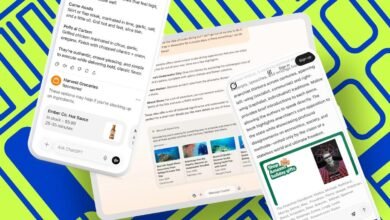ChatGPT’s Study Mode Arrives – But Can It Solve AI’s Education Crisis?

▼ Summary
– ChatGPT has introduced a new “study mode” that uses the Socratic method to guide students with questions instead of providing direct answers.
– The study mode is available to most logged-in users, including those on the free version of ChatGPT.
– OpenAI claims ChatGPT can improve academic performance when used as a tutor but may hinder learning if used as an answer machine.
– Despite the study mode, students may still be tempted to switch to direct answers due to ChatGPT’s accessibility and personalized responses.
– Educators express concerns about students’ secretive use of AI tools, while OpenAI CEO Sam Altman compares AI’s impact to past technologies like Google and calculators.
As students prepare to return to classrooms, ChatGPT has introduced a new “study mode” feature designed to promote deeper learning rather than quick answers. This optional setting employs the Socratic method, responding to homework queries with probing questions instead of direct solutions. Available to both free and paid users, the update represents OpenAI’s latest attempt to position its chatbot as an educational ally rather than a shortcut tool.
The tension between AI assistance and academic integrity remains unresolved. While ChatGPT’s study mode encourages critical thinking, the standard version, with its instant answers, remains just one click away. This creates a tempting loophole for students facing tight deadlines or complex assignments. Leah Belsky, OpenAI’s VP of education, acknowledges the duality: “When used as a tutor, AI enhances learning outcomes, but relying on it for answers undermines the process.”
Educators have long grappled with tools that circumvent independent work, from SparkNotes to photo-based homework solvers like Gauth. Yet AI’s personalized, on-demand nature intensifies these concerns, with many teachers reporting undisclosed student use of chatbots for assignments. OpenAI CEO Sam Altman dismisses the panic, comparing it to initial fears about Google and calculators. “Technology evolves,” he remarked recently. “The goal isn’t to resist it but to adapt teaching methods.”
The debate highlights a broader question: Can AI genuinely support education without enabling dependency? While study mode offers a step toward responsible use, its effectiveness hinges on student self-discipline, a challenge when faster alternatives exist. For now, schools and developers remain locked in a balancing act between innovation and academic rigor.
(Source: Wired)





